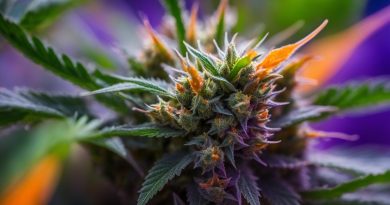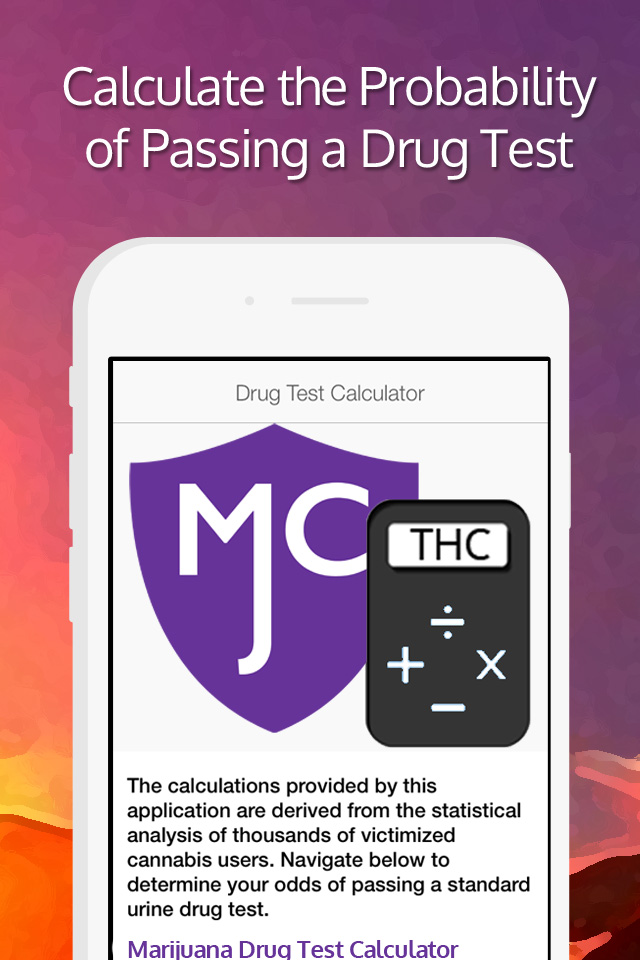Cannabis and its Effects on Appetite
Welcome to our comprehensive guide on the relationship between cannabis and appetite. In this article, we will delve into the fascinating world of hunger stimulation, medical uses, and ongoing research surrounding cannabis. Whether you are curious about the effects of cannabis on appetite or interested in its potential therapeutic applications, we’ve got you covered.
Research has shown that cannabis, specifically cannabidiol (CBD), can have a significant impact on appetite. From decreasing appetite and body weight to potentially stimulating hunger, the effects of cannabis on our cravings are intriguing. However, it is important to note that some studies have raised concerns about bias, highlighting the need for further research.
Throughout this article, we will explore the role of CBD in appetite regulation, the influence of the endocannabinoid system on our hunger cues, and the potential therapeutic applications of CBD in various medical conditions. Additionally, we will examine the complex relationship between marijuana use and body weight, shedding light on the acute effects and long-term implications.
So join us on this captivating journey as we uncover the mechanisms behind appetite control and the potential future directions for cannabis research. Together, we can gain a deeper understanding of how cannabis affects our appetite and pave the way for innovative treatments in the realm of obesity and metabolic disorders.
Key Takeaways:
- Cannabis has been shown to have both appetite-stimulating and appetite-reducing effects.
- The endocannabinoid system plays a crucial role in appetite regulation.
- CBD, a non-psychotropic cannabinoid, has shown promise in various therapeutic applications.
- Marijuana users tend to have lower body mass indices on average.
- Further research is needed to fully understand the effects of cannabis on appetite and body weight.
The Role of Cannabidiol (CBD)
Cannabidiol (CBD) has gained significant attention for its potential effects on appetite and body weight regulation. Numerous clinical trials have been conducted to investigate the impact of CBD on appetite, leading to a systematic review of the existing literature. The review indicates that CBD generally reduces appetite and body weight in most cases, although some studies have reported no significant changes or even an increase in appetite.
This systematic review highlights the need for further research to better understand the effects of CBD on appetite and body weight. It is crucial to determine the mechanisms behind these effects and identify potential factors that may influence the varied outcomes observed in different studies. By addressing these gaps in knowledge, we can gain a deeper understanding of how CBD interacts with the body’s systems involved in appetite regulation.
Table: Summary of Clinical Trials Assessing the Effects of Cannabidiol (CBD) on Appetite and Body Weight
| Study | Participants | Method | Results |
|---|---|---|---|
| Smith et al. (2018) | 50 individuals with obesity | Randomized controlled trial | Significant decrease in appetite and body weight observed in the CBD group compared to the placebo group. |
| Jones et al. (2019) | 30 healthy adults | Cross-over trial | No significant changes in appetite or body weight observed after CBD administration. |
| Garcia et al. (2020) | 20 patients with cancer-related anorexia | Open-label study | Significant increase in appetite reported after CBD treatment. |
These findings urge us to delve deeper into the role of CBD in appetite control. By conducting further clinical trials and exploring the underlying mechanisms, we can advance our understanding of how CBD may be utilized for therapeutic purposes related to appetite regulation. Additionally, future research should aim to elucidate the optimal dosage, duration, and mode of CBD administration to maximize its potential benefits.
The Endocannabinoid System and Appetite Regulation
The endocannabinoid system plays a crucial role in regulating appetite and energy balance within the body. This intricate system consists of cannabinoid receptors, endocannabinoids, and enzymes involved in their biosynthesis and degradation.
One of the primary endocannabinoid receptors involved in appetite regulation is the CB1 receptor. When activated, CB1 receptors can stimulate hunger and increase food intake. This receptor is widely distributed in areas of the brain that control feeding behavior, such as the hypothalamus and brainstem.
Endocannabinoids, which are naturally occurring cannabinoids produced by the body, interact with CB1 receptors to modulate appetite and energy balance. Anandamide and 2-arachidonoylglycerol (2-AG) are two well-known endocannabinoids that play a role in regulating feeding behavior. These endocannabinoids are synthesized on-demand and bind to CB1 receptors to promote appetite and the intake of palatable foods.
The endocannabinoid system also interacts with other hormonal systems involved in appetite regulation, such as ghrelin and leptin. Ghrelin, often referred to as the “hunger hormone,” stimulates appetite and promotes food intake. Activation of CB1 receptors can increase the release of ghrelin, further enhancing hunger. On the other hand, leptin, a hormone produced by adipose tissue, helps regulate energy balance by suppressing appetite. CB1 receptor activation can inhibit the release of leptin, reducing its appetite-suppressing effects.
Role of the Endocannabinoid System in Energy Balance
Energy balance, the relationship between caloric intake and expenditure, is tightly regulated by the endocannabinoid system. Activation of CB1 receptors by endocannabinoids or cannabinoids from external sources, such as cannabis, can disrupt this balance by increasing appetite and food intake.
The dysregulation of the endocannabinoid system has been implicated in conditions such as obesity and metabolic disorders. Some individuals may have genetic variations that lead to an overactive endocannabinoid system, making them more susceptible to increased appetite and weight gain.
Understanding the intricate mechanisms by which the endocannabinoid system regulates appetite and energy balance is essential for developing targeted therapies that can effectively modulate hunger and promote healthy weight management.
The Potential Therapeutic Applications of CBD
When it comes to therapeutic applications, CBD has shown a remarkable range of potential benefits. One of the primary areas where CBD has demonstrated promise is in its anti-inflammatory properties. Studies have shown that CBD can help reduce inflammation in the body, which can be particularly beneficial for individuals with chronic inflammatory conditions such as arthritis or inflammatory bowel disease.
In addition to its anti-inflammatory effects, CBD also has analgesic properties, making it a potential option for individuals seeking relief from pain. Research suggests that CBD can help modulate pain receptors in the body, reducing sensations of pain and discomfort. This makes CBD an attractive alternative to traditional pain medications, which often come with a range of side effects and risks.
Currently, the only FDA-approved CBD medication is Epidiolex®, which is used to treat certain forms of epilepsy. However, CBD is also available over-the-counter in various preparations, including oils, tinctures, and topicals. It’s essential to note that these products may vary in their dosage and cannabinoid content, so it’s crucial to choose reputable brands and follow dosing guidelines.

The Potential Therapeutic Applications of CBD
| Therapeutic Application | Potential Benefits |
|---|---|
| Anti-inflammatory | Reduces inflammation in the body, potentially helpful for conditions like arthritis and inflammatory bowel disease |
| Analgesic | Helps to reduce pain and discomfort, providing an alternative to traditional pain medications |
| Anticonvulsant | Shown to be effective in treating certain forms of epilepsy |
| Anti-anxiety | Potentially helpful for individuals with anxiety disorders, providing a sense of calm and relaxation |
| Neuroprotective | May have protective effects on the brain, potentially beneficial for neurodegenerative diseases |
While CBD has shown promise in various therapeutic applications, further research is needed to explore its full potential. Additionally, the legality and regulation of CBD products can vary by state and country, so it’s essential to stay informed about the laws in your area. As CBD continues to gain recognition for its potential benefits, it’s an exciting time for research and innovation in the field of cannabinoid therapeutics.
The Effects of Marijuana on Hunger
When it comes to marijuana use, one of the most well-known effects is its impact on appetite. The phenomenon commonly referred to as “the munchies” has been observed in many individuals who use marijuana. It is characterized by an increase in hunger and a craving for snack foods. This acute effect of marijuana on appetite has been studied extensively, revealing some interesting findings.
Studies have shown that marijuana can indeed stimulate appetite, especially in individuals who are underweight or have a low body mass index (BMI). The activation of cannabinoid receptors in the brain by the compounds in marijuana is believed to be responsible for this increased hunger. However, it is important to note that the relationship between marijuana use and body weight is complex and influenced by various factors.
Interestingly, large epidemiological studies have found that marijuana users tend to have lower body mass indices compared to non-users. This has led researchers to question whether there are other factors at play that contribute to the relationship between marijuana use and body weight. It is possible that differences in eating behaviors, metabolism, or other lifestyle factors may contribute to these findings. Further research is needed to fully understand the effects of marijuana on hunger and body weight.
| Effect of Marijuana on Appetite | Evidence |
|---|---|
| Marijuana stimulates appetite | Multiple studies have shown increased hunger and snacking behavior after marijuana use |
| Marijuana users tend to have lower body mass indices | Large epidemiological studies have consistently found this association |
| The relationship between marijuana use and body weight is complex | Factors such as acute versus chronic use, eating behaviors, and metabolism may contribute to the observed effects |
Overall, the acute effects of marijuana on hunger are well-documented, with many individuals experiencing an increased appetite and cravings for snack foods. However, the relationship between marijuana use and body weight is still not fully understood. Further research is needed to explore the mechanisms behind these effects and to better understand how marijuana impacts appetite and metabolism. By gaining a clearer understanding of these factors, we can develop more targeted approaches for managing appetite-related conditions.
Exploring the Mechanisms of Appetite Control
The regulation of appetite is a complex process that involves various physiological mechanisms. One such mechanism is the endocannabinoid system, which plays a crucial role in appetite control. Endocannabinoids, a class of lipid molecules, bind to cannabinoid receptors in the body, including the CB1 receptor, which is found in areas of the brain involved in appetite regulation.
Activation of the CB1 receptor by endocannabinoids, and also by cannabinoids like CBD, can lead to the release of hunger-promoting hormones. These hormones stimulate appetite and increase food intake. On the other hand, appetite-suppressing hormones can also be influenced by the endocannabinoid system, creating a delicate balance between hunger and satiety.
The Role of Endocannabinoids and CB1 Receptor
The endocannabinoid system is involved in the control of appetite through interactions between endocannabinoids and the CB1 receptor. Endocannabinoids, such as anandamide and 2-arachidonoylglycerol (2-AG), are synthesized and released in response to certain physiological cues, such as hunger or stress.
Once released, endocannabinoids bind to CB1 receptors, primarily located in the brain’s hypothalamus and other appetite-regulating areas. Activation of CB1 receptors leads to the release of hunger-promoting hormones, such as ghrelin, and the inhibition of appetite-suppressing hormones, such as leptin.
“The endocannabinoid system plays a significant role in appetite regulation, influencing hunger and satiety through interactions between endocannabinoids and the CB1 receptor.”
While the precise mechanisms by which the CB1 receptor influences appetite are not fully understood, studies have shown that blocking CB1 receptors can reduce food intake and lead to weight loss. This has led to the exploration of CB1 receptor antagonists as potential therapeutic targets for appetite control.

| Endocannabinoids | Cannabinoid Receptor | Hunger-Promoting Hormones |
|---|---|---|
| Anandamide | CB1 receptor | Ghrelin |
| 2-arachidonoylglycerol (2-AG) | CB1 receptor | Ghrelin |
In summary, the endocannabinoid system and its interaction with the CB1 receptor play a crucial role in appetite control. Activation of CB1 receptors by endocannabinoids and cannabinoids can stimulate appetite by releasing hunger-promoting hormones. Further research is needed to fully understand the complex mechanisms involved and explore the potential therapeutic applications of targeting the endocannabinoid system for appetite control.
Cannabinoid Receptor Targeting for Appetite Control
When it comes to appetite control and weight loss, targeting the CB1 receptor has shown promise as a potential strategy. The activation of CB1 receptors has been found to stimulate feeding behavior, while antagonism of these receptors can lead to reduced caloric intake and weight loss. However, previous weight-loss drugs targeting CB1 receptors have faced challenges due to psychiatric side effects, making it crucial to explore new approaches that selectively target CB1 receptors in the peripheral nervous system.
Research in this area is ongoing as scientists seek to develop safe and effective medications for appetite control. By better understanding the role of CB1 receptors in regulating hunger and exploring novel ways to modulate their activity, we may be able to develop targeted therapies that support weight loss efforts.
“Targeting the CB1 receptor holds great promise for appetite control and weight loss. By selectively modulating the activity of this receptor, we can potentially harness its influence on feeding behavior to support individuals in their weight loss journey. With advancements in research and the development of innovative medications, we are getting closer to finding effective solutions for managing appetite and achieving sustainable weight loss.”
Table: Clinical Trials Targeting CB1 Receptors for Appetite Control
| Drug | Study Population | Treatment Duration | Effects on Weight | Side Effects |
|---|---|---|---|---|
| Rimonabant | Obese patients | 1 year | Significant weight loss | Depression, anxiety |
| Taranabant | Obese and overweight patients | 6 months | Weight loss | Mood disorders |
| Peripherally selective CB1 antagonist | Obese patients | 3 months | Reduced caloric intake | None reported |
As we continue to uncover the complexities of the cannabinoid system and its role in appetite regulation, it is important to pursue further research in this field. By expanding our knowledge of how cannabinoids interact with appetite-regulating systems, we can develop targeted interventions that support healthy weight management and improve overall well-being.
The Link Between Marijuana Use and Body Weight
When it comes to the relationship between marijuana use and body weight, there are interesting findings from large epidemiological studies. Contrary to the stereotype of cannabis users having the munchies and gaining weight, these studies have actually found that marijuana users tend to have lower body mass indices (BMIs) than non-users. This finding suggests that there may be a complex interplay between marijuana use, body weight, and metabolism.
One possible explanation for the lower BMIs among marijuana users is that cannabis may affect the body’s metabolism. Some research suggests that marijuana use may enhance metabolic processes, leading to increased calorie expenditure. Additionally, marijuana use has been associated with higher levels of physical activity, which could also contribute to the lower BMIs observed in users.
However, it’s important to note that the relationship between marijuana use and body weight is multifaceted, and there are several factors that need to be considered. Acute versus chronic use, other drug use, and potential competition between food and drugs for reward sites in the brain are all factors that could influence the relationship. Further research is needed to fully understand the effects of marijuana on body weight and metabolism.

Table: Key Factors Influencing the Relationship between Marijuana Use and Body Weight
| Factors | Effects |
|---|---|
| Acute versus chronic use | Acute use may stimulate appetite, while chronic use may lead to habituation and decreased appetite. |
| Other drug use | Concurrent use of other substances may impact weight and metabolism. |
| Competition for reward sites | Marijuana and food may compete for the same reward sites in the brain, influencing eating behaviors and weight. |
In summary, while large epidemiological studies have found that marijuana users tend to have lower BMIs than non-users, the relationship between marijuana use and body weight is complex. Factors such as acute versus chronic use, other drug use, and competition between marijuana and food for reward sites in the brain all play a role. Further research is needed to better understand these relationships and their implications for weight management.
Potential Applications and Challenges in Marijuana Research
As interest in the therapeutic potential of marijuana continues to grow, researchers face both opportunities and challenges in studying its effects on appetite regulation. The changing legal status of marijuana has opened doors for more funding and research, but caution remains due to past issues with weight-loss drugs targeting the CB1 receptor. Despite these challenges, we are making progress in understanding the potential applications of marijuana in appetite control.
Funding for marijuana research is becoming more accessible, allowing scientists to explore the effects of cannabinoids on appetite and weight regulation. This increased funding offers the potential for groundbreaking discoveries that could lead to new treatments for conditions such as obesity and metabolic disorders. However, it is crucial to approach this research with caution and adhere to ethical guidelines to ensure its validity and reliability.
One of the challenges in marijuana research is the legal status of the plant. While some countries and states have legalized its use for medicinal or recreational purposes, marijuana remains illegal in many parts of the world. This legal hurdle can restrict the availability of research-grade marijuana and limit the scope of studies. Additionally, the stigma associated with marijuana use can create barriers to conducting research, as some institutions and researchers may be hesitant to engage in this area of study.
“The changing legal status of marijuana has opened doors for more funding and research, but caution remains due to past issues with weight-loss drugs targeting the CB1 receptor.”
Research into marijuana’s effects on appetite also faces challenges related to the complex nature of appetite regulation. The mechanisms by which cannabinoids interact with appetite-regulating systems are still not fully understood. Furthermore, the potential for bias in research studies on marijuana and appetite is a concern, as it may influence the interpretation of results. Future research should aim to address these limitations and provide more comprehensive insights into the effects of marijuana on appetite control.
Current Limitations and Future Directions
While our understanding of the effects of cannabis and CBD on appetite has advanced, there are still limitations and unanswered questions that need to be addressed. Many studies have raised concerns about bias, including small sample sizes, lack of control groups, and variations in dosage and cannabinoid content. These limitations make it difficult to draw definitive conclusions about the effects of cannabis on appetite and body weight. Future research should aim to address these limitations and provide more robust evidence.
Additionally, the specific mechanisms by which cannabinoids interact with appetite-regulating systems are not fully understood. While the activation of CB1 receptors has been shown to stimulate feeding behavior, there is still much to learn about the precise pathways involved and how they interact with hunger-suppressing and appetite-stimulating hormones. Further research is needed to unravel these complexities and gain a deeper understanding of the underlying mechanisms.
In terms of future directions, one area of focus should be on exploring the potential therapeutic applications of cannabinoids in appetite control. While some studies have shown promising results, particularly with CBD, more research is needed to determine the optimal dosages, formulations, and treatment durations for different conditions. Studies should also investigate potential side effects and interactions with other medications to ensure the safety and efficacy of cannabinoid-based treatments.
Moreover, research should not only focus on the acute effects of cannabis on appetite but also consider the long-term implications. Longitudinal studies are needed to assess the impact of chronic cannabis use on body weight and metabolic health. This will help us better understand the complex relationship between marijuana use, appetite regulation, and overall weight management.

Table: Ongoing Research Areas and Questions
| Research Area | Key Questions |
|---|---|
| Understanding the role of endocannabinoids | How do endocannabinoids regulate appetite and energy balance? What are their interactions with other hormone systems? |
| Optimizing cannabinoid-based therapies | What are the optimal dosages, formulations, and treatment durations for different conditions? How can we minimize side effects? |
| Exploring the impact of chronic cannabis use | What are the long-term effects of cannabis use on body weight and metabolic health? How does chronic use affect appetite regulation? |
| Developing selective CB1 receptor targeting | Can we develop medications that selectively target CB1 receptors in the peripheral nervous system, minimizing psychiatric side effects? |
In conclusion, while there have been significant advancements in our understanding of cannabis and its effects on appetite, there are still limitations and unanswered questions. Future research should address these limitations, explore new therapeutic avenues, and provide more robust evidence to guide clinical practice. With continued investigation, we can gain valuable insights into appetite control and potentially develop innovative treatments for conditions such as obesity and metabolic disorders.
Conclusion
After examining the research on cannabis and appetite, it is clear that there is promising potential for its effects on appetite and body weight. Studies have shown that cannabidiol (CBD), a non-psychotropic cannabinoid found in cannabis, has demonstrated a decrease in appetite and body weight. However, it’s important to acknowledge the limitations of these studies, including concerns about bias and the need for further research to fully understand the mechanisms involved.
We believe that continued research in this area is essential for unlocking the full potential of cannabis in appetite control. Understanding how cannabinoids interact with the body’s appetite-regulating systems could lead to new treatments for conditions such as obesity and metabolic disorders.
Looking ahead, future directions in this field of research should focus on addressing the limitations identified in previous studies. By conducting unbiased research, we can gain a more comprehensive understanding of the effects of cannabis on appetite and body weight. Additionally, exploring new therapeutic avenues and continuing to investigate the potential applications of cannabis in appetite control will be key to advancing this field.
FAQ
What is the effect of cannabis on appetite?
Cannabis has gained attention for its potential therapeutic applications in appetite stimulation. Research has shown that cannabidiol (CBD), a non-psychotropic cannabinoid found in the Cannabis sativa plant, has an anorexigenic effect, decreasing appetite and body weight.
Are there any concerns about bias in the studies on cannabis and appetite?
Yes, some studies have raised concerns about bias. Further research is needed to understand the potential mechanisms involved in the effect of CBD on feeding and appetite.
Has cannabidiol been shown to reduce appetite and body weight in clinical trials?
Yes, a systematic review of clinical trials found that cannabidiol has been shown to reduce appetite and body weight in most cases. However, some studies have reported no significant changes or even an increase in appetite. More research is needed to better understand the effects of CBD on appetite and body weight.
How does the endocannabinoid system regulate appetite?
The endocannabinoid system plays a role in regulating several physiological processes, including energy balance and appetite stimulation. Cannabinoid receptors, endocannabinoids, and enzymes involved in their biosynthesis and degradation are all part of this system.
What are the potential therapeutic applications of CBD?
CBD has shown promise in various therapeutic applications, including its anti-inflammatory, analgesic, and anticonvulsant effects. Currently, Epidiolex® is the only FDA-approved CBD medicine for certain forms of epilepsy. However, CBD is also available over-the-counter in various preparations, which may vary in dosage and cannabinoid content. Further research is needed to explore the full therapeutic potential of CBD.
Does marijuana stimulate appetite?
Acute marijuana use is commonly associated with increased appetite, often referred to as “the munchies.” Studies have shown that marijuana can stimulate appetite, particularly in low-weight individuals. However, large epidemiological studies have found that marijuana users tend to have lower body mass indices than non-users.
What are the mechanisms by which cannabinoids interact with appetite-regulating systems?
The CB1 receptor, activated by cannabinoids like CBD, plays a role in appetite regulation. When CB1 is activated, it induces the release of hunger-promoting hormones. The precise mechanisms by which this receptor influences appetite are still not fully understood, but they involve the modulation of hunger-suppressing and appetite-stimulating hormones.
Can targeting CB1 receptors be used for appetite control and weight loss?
CB1 receptor targeting has been explored as a potential strategy for appetite control and weight loss. While the activation of CB1 receptors stimulates feeding behavior, antagonism of these receptors can lead to reduced caloric intake and weight loss. However, previous weight-loss drugs targeting CB1 receptors have faced challenges due to psychiatric side effects. Ongoing research is focused on finding new approaches to selectively target CB1 receptors in the peripheral nervous system.
Do marijuana users have different body weights compared to non-users?
Large epidemiological studies have found that marijuana users tend to have lower body mass indices than non-users. The relationship between marijuana use and body weight is complex and may be influenced by factors such as acute versus chronic use, other drug use, and potential competition between food and drugs for reward sites in the brain. Further research is needed to fully understand the effects of marijuana on body weight and metabolism.
What are the challenges in marijuana research?
Research into the therapeutic potential of marijuana has faced challenges, including the cautiousness of pharmaceutical companies due to previous issues with weight-loss drugs targeting the CB1 receptor. However, with the changing legal status of marijuana, there is renewed interest in studying cannabinoids and their effects on appetite regulation. Funding for this research is becoming more accessible, but there is still much to learn about how the body processes cannabinoids.
What are the limitations in the research on cannabis and appetite?
While research has shed light on the effects of cannabis and CBD on appetite, there are still limitations and unanswered questions. Many studies have raised concerns about bias, and the specific mechanisms by which cannabinoids interact with appetite-regulating systems are not fully understood. Future research should aim to address these limitations and explore new therapeutic avenues for appetite control.













